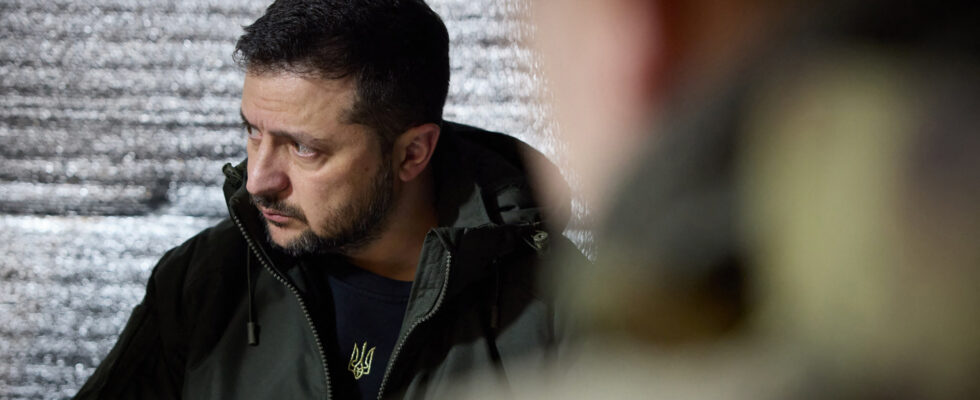Ukrainian President Volodymyr Zelensky began a tour in Lithuania on Wednesday of the Baltic countries, kyiv’s loyal supporters in the face of the Russian invasion, at a time when other allies are hesitant to provide new aid. “Estonia, Latvia and Lithuania are our reliable friends and principled partners. Today I arrived in Vilnius before going to Tallinn and Riga,” the Ukrainian president said on X (ex- Twitter), announcing meetings with senior officials from these countries.
Intense Russian bombings in recent weeks
“Security, EU and NATO integration, cooperation on electronic warfare and drones, as well as continued coordination of European support are on the agenda,” he said. -He specifies. The tour to the Baltic countries, former Soviet republics now members of NATO and the EU, is Volodymyr Zelensky’s first official trip abroad in 2024.
Ukraine has come under intense Russian bombardment in recent weeks, responding with strikes on the Russian town of Belgorod, located close to the border between the two countries, as Moscow’s invasion approaches its second anniversary in February. Volodymyr Zelensky, for his part, continues to urge his allies to maintain their military support and spoke last month with representatives of the United States, Germany and Norway.
50 billion euros blocked
However, an EU aid package worth 50 billion euros remains blocked in Brussels following Hungary’s veto, while the US Congress remains divided over sending aid additional to kyiv. Faced with the escalation of air attacks against Ukraine, Lithuanian President Gitanas Nauseda last week urged his allies to deliver air defense systems to kyiv.
“The Ukrainians are doing wonders with the air defense provided by the West, but they need more,” he wrote last week on X. Lithuania is Ukraine’s largest aid donor as a proportion of GDP, according to the German research center Kiel Institute which lists the military, financial and humanitarian aid promised and delivered to Ukraine since February 24, 2022. Vilnius has already promised a total of government aid to Kiev representing nearly 1.4% of its GDP, according to him.
“Much more dangerous world”
The other Baltic States, Estonia and Latvia, were ranked in second and fifth positions, the aid announced from these two NATO members and the EU amounting in total respectively to 1.3 and at 1.1% of their GDP. Estonian Foreign Minister Margus Tsahkna assured that Tallinn was ready to “allocate 0.25% of its GDP for military aid to Ukraine” over the next four years.
“It is much cheaper to support Ukraine now compared to the price the international community would have to pay if Russia achieved the goals of this ruthless aggression,” argued Margus Tsahkna on X Sunday. For her part, Estonian Prime Minister Kaja Kallas stressed on Wednesday the importance of unwavering support for Ukraine. “We must support Ukraine as long as it takes and as long as it takes for Ukraine’s victory (…) “If we allow the aggressors to take precedence over international law and dictate the rules of the game, we will find ourselves in a much more dangerous world,” she said according to a press release.
Aid promised to Ukraine fell by 90%
Latvia has undertaken, for its part, “to permanently provide military equipment and training to Ukrainian soldiers and to expand the drone coalition”, according to its Defense Minister. “This is our common fight for the future of freedom, democracy and the rules-based international order,” said Andris Spruds. According to him, the Baltic state will have trained around 3,000 Ukrainian soldiers in 2023.
Volodymyr Zelensky last visited Vilnius for a NATO summit in July 2023, where he obtained pledges of support for Kiev from Western leaders, including US President Joe Biden. However, recent Russian attacks against critical infrastructure and residential neighborhoods in recent days have pushed kyiv to urgently request arms deliveries in order to better counter Moscow’s strikes.
Yet aid promised to Ukraine between August and October 2023 fell by almost 90% compared to the same period in 2022, reaching its lowest level since the start of the war, according to the Kiel Institute in December .
